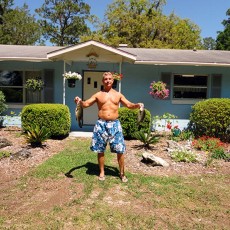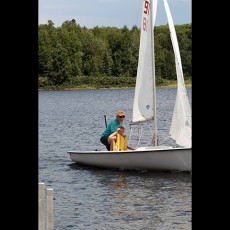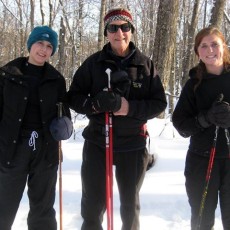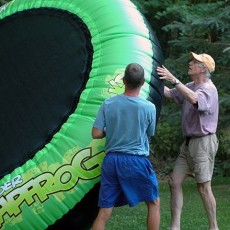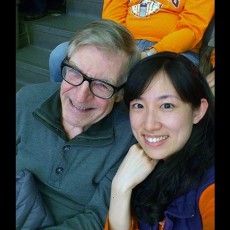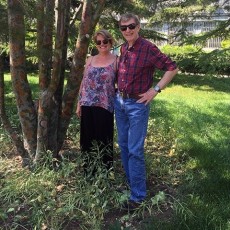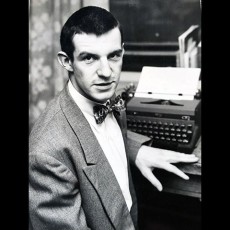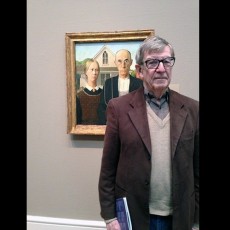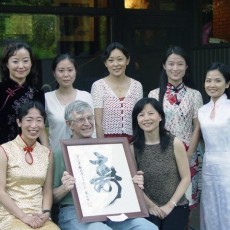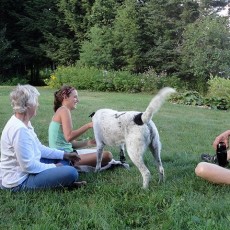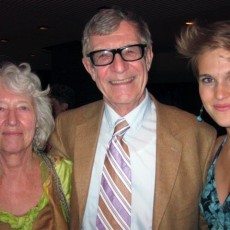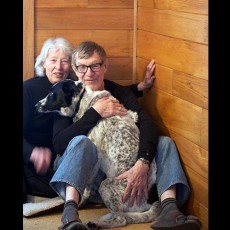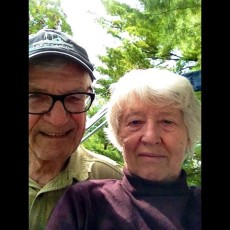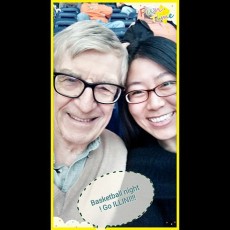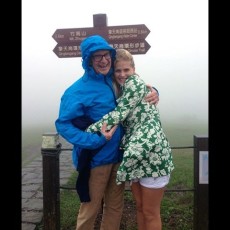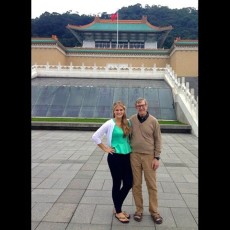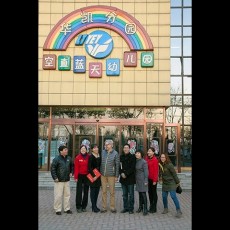Richard Anderson
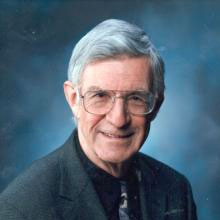
Richard C. Anderson is University Scholar and Professor Emeritus of Educational Psychology and Psychology as well as director of the Center for the Study of Reading at the University of Illinois, Urbana-Champaign. Having earned his bachelor’s degree in American history (cum laude) from Harvard University, Anderson felt inspired to become a secondary social studies teacher, first earning his master’s degree in teaching and then his doctorate in educational psychology (both from Harvard University) while working with junior high and high school students in Concord, Massachusetts. In addition to working as a research assistant at the Laboratory for Research on Instruction while at Harvard and then as a research associate at the Experimental Teaching Center at New York University, Anderson also served as an assistant superintendent in East Brunswick, New York public schools before joining the faculty at the University of Illinois. As a faculty member, educational researcher, and scholar, Anderson has dedicated more than 50 years to conducting influential research on children’s reading and vocabulary growth, classroom discussions that promote thinking, and related topics. In addition to his service as a professor at universities in Beijing, Hong Kong, and Taiwan, Anderson has received teaching awards at the University of Illinois including recognition on the Outstanding Teachers list during most of the semesters he taught since the list was first compiled in 1970, Distinguished Career Teaching Award (2002), and the Outstanding Mentor Award (2001) for his dedicated work with doctoral students. As a member of the National Academy of Education (NAE, 1979) and past president of the American Educational Research Association (AERA; 1983-1984), he has also received numerous other awards and honors including the Palmer O. Johnson Award (AERA, 1972 and 1977); William S. Gray Citation of Merit (the highest honor of the International Reading Association, (IRA, 1992); Distinguished Contributions to Educational Research (AERA, 1994); Edward L. Thorndike Award (American Psychological Association (APA, 1997); and Sylvia Scribner Award (AERA, 2006). As of 2015, Anderson has published approximately 250 scholarly works (including at least four in press) that have been collectively cited more than 35,000 times (as of September 2016). His book, Becoming a Nation of Readers (1985, with Elfrieda Hiebert, Judith A. Scott, and Ian A. G. Wilkinson), is one of the most widely read books of all time in the field of literacy and has more than 2,000 citations. In his retirement, Anderson has continued his comparative analysis of learning to read alphabetic and nonalphabetic languages, specifically English and Chinese, as well as research examining children’s intellectual and social development in the context of classroom discussions.
For more information, visit Richard Anderson’s Website. To learn more about Richard Anderson from his family and friends, visit his Reflections. To view photographs from Richard Anderson’s personal collection, visit his Photo Gallery.
Curriculum Vitae Suggested readingsVisit the video below to watch a short overview of the interview with Richard Anderson. Otherwise, see all five of the full interviews with Richard Anderson below.
Video Interviews with Richard Anderson:
Born and raised in the small farming town of River Falls, Wisconsin, Dr. Richard C. Anderson describes his father and mother’s dedication to family and the community in their roles as a country doctor and homemaker. First expressing his interest in education when writing a high school essay about his future career as a college professor, Anderson recalls leaving home on a train with all of his belongings in a steamer trunk to accept a scholarship at Harvard University-the only university to which he applied. Feeling as though he “was in a foreign country” upon his arrival, Anderson recalls “not understanding a thing he read” in his first assignment, but soon discovering his passion for American history. In this clip, hear more from Dr. Anderson about what inspired him to become a classroom teacher and district administrator and his early experiences as an educational researcher and scholar.
Having served as a distinguished faculty member at the University of Illinois, Urbana-Champaign for more than a half-century, Dr. Richard C. Anderson describes his commitment to teaching and dedication to students. Although he notes that he “can still give a good lecture on occasion,” Anderson much prefers to engage students in conversation, noting that we need “more space for student ideas.” Recalling a few of the most important themes from Becoming a Nation of Readers, one of the most widely read books in literacy, Anderson notes that the book “respects the complexity of a teacher’s job and how well most do it most of the time” and acknowledges that “there is no jiffy solution” to the challenges teacher face in meeting diverse students’ needs. In this clip, learn more about Dr. Anderson’s impact on the field of reading cognition, vocabulary growth and development, and Chinese language acquisition as his wife, Dr. Jana M. Mason, and former students also describe his pioneering work.
Reflecting on his work in collaborative reasoning, Dr. Richard C. Anderson describes the importance of engaging children in classroom discussions with their peers. He highlights the value of moral or ethical questions that prompt children to think and discuss problems in ways that also inherently improve their writing skills. Noting that even though most teachers can effectively lead such classroom discussions with a little practice, Anderson adds that teachers (and their principals) who struggle to consistently implement collaborative reasoning frequently describe feeling pressure to “cover the curriculum by getting through the textbook,” especially in the context of high-stakes testing and accountability. Watch this clip to hear more from Dr. Anderson about his extensive research on children’s use of collaborative reasoning and the imperative to inform policymakers who can further empower teachers to impact practice.
Describing dual lines of research in Chinese reading development, Dr. Richard C. Anderson has examined, for example, Chinese children’s representation of characters in their minds and differences in how American and Chinese children learn to read in their native language. Noting that Chinese parents have no tradition of reading to their children, instead often playing interactive games, Anderson describes efforts to develop a series of books written in Chinese that are now used in thousands of Kindergarten classrooms across China. Anderson, explaining that “you always need more research but at some point you need to act,” describes his experiences observing high-quality lessons using shared book reading in Chinese classrooms. Also characterized by his family and former students as an exceptional mentor, Anderson recalls his own sense of fulfillment in empowering others to reach their full potential. Watch this clip to hear more from Dr. Anderson about his commitment to mentoring his students and subsequent generations in his growing academic family.
Characterized as “trust[ing] children to be curious and teachers to lead rather than lecture,” Dr. Richard C. Anderson reflects upon his career of more than five decades, noting that he is “eager to reap the fruits of the research we have been doing on collaborative reasoning” in reference to studies underway. Despite having published more than 250 scholarly works, Anderson notes that he would still like to be part of a revolution that would improve schools so that they are “more intellectually stimulating, more conceptually rich, [and] more personally engaging for children.” He remains inspired by discovering “a really cool, new finding” and explains that his students continue to “given him a tremendous and stimulating ride into the future.” Watch this clip to hear more from Dr. Anderson about the perpetual policy stalemate on how to improve education, and his advice for graduate students and emerging educational researchers and scholars.
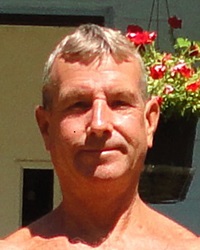
Andrew Anderson
Describing time spent with his father, Dr. Richard C. Anderson, at the family lake house in the North Woods of Wisconsin as “the best time,” and an annual summer event that he “look[s] forward to all year long,” Andrew Anderson characterizes the supportive nature of their relationship, explaining that “I know if I ever need him, he will be there for me[, and] I will be there for him.” Andrew notes that his father is also “quite the entertainer,” recalling an enjoyable childhood trip down the Eagle River (in Wisconsin) during which the family stopped at a particular zoo. Noting that his father “proceeded to drop coins into a drink machine,” after which Andrew describes “watch[ing] in utter amazement, as [his father] chuckled and a live bear slugged down bottle after bottle of soda pop!” Sharing another humorous childhood memory, Andrew recalls the time his father lost his glasses at their family home in Illinois, noting that the house had “lots of stuff and plenty of places to lose things, especially small things like a pair of glasses.” After “the whole family looked and looked and looked for those glasses,” they finally found them-on his father’s head. Andrew adds that “knowing his dad, that incident was very unusual and absolutely hilarious!” Characterizing his father as “extremely: ‘Gifted and Talented,’ devoted, optimistic, entertaining, fun-loving, generous, and kind,” Andrew cites his greatest accomplishment as “the profound impact he has made on improving childhood literacy both nationally and abroad,” adding that “this is a direct result of his lifelong devotion to hands-on reading research as a world renowned Reading Specialist.”
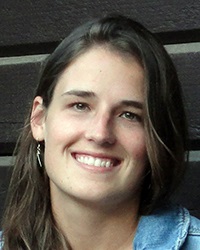
Drew Anderson
Characterizing her grandfather, Dr. Richard C. Anderson, as her “summer-kayaking, bread-baking, and hiking buddy in the North Woods of Wisconsin,” Drew Anderson recalls driving 22 hours from Florida to Wisconsin with a friend to visit, and notes that “as soon as we got out of the car, my eighty some year old grandpa asked, ‘Want to go kayaking?'” Also remembering time spent together on a trip to Western China, Drew describes their visit to a local market, noting that her grandfather had wanted to buy some saffron tea and that the high price he paid proved to be a lesson in bartering that he regrets to this day. Describing her grandfather as “a hardworking man who never ceases to help others,” Drew notes that his “most significant personal accomplishment is helping his grandkids achieve their college dreams,” adding that “he has always encouraged and helped his grandkids without a second thought.” Drew captures his essence and nature as “an optimist with a can-do attitude,” explaining that he “enjoys nature, the arts, and cooking amazing dishes,” and that he “is down to earth and continues to be energetic and athletic.”
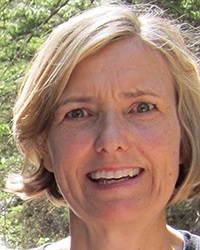
Rachel Anderson
Explaining that “first and foremost, like all kids, we wanted our dad’s approval,” Dr. Richard C. Anderson’s daughter, Rachel Anderson, describes him as “driven by [the] pursuit of excellence and respect[ful] of excellence in others.” Rachel adds that she and her siblings “always knew it didn’t matter what path we chose for our lives, as long as we worked hard at it and did quality work.” As an elementary school teacher, Rachel recalls the pressure she felt before his first visit to her classroom with his wife, Dr. Jana M. Mason. Noting that after the visit they were “both very complimentary (as well as analytical) and supportive,” Rachel explains that she “felt like [she] had arrived.” Noting that her father travels to China frequently with his work and that he has taken each child and grandchild along on a trip, Rachel describes their jet-lag and hunger upon arriving in Beijing, explaining that they “found a restaurant to get some dinner to delay bedtime as long as possible.” She recalls that they “settled on an entrée with the name of something like ‘Happy Prawns,’ [and] knew it was going to be one of those interesting cultural experiences when the waiter brought to [their] table a griddle, and then a rather generous bowl of fresh, very fresh, in fact live, prawns.” Once the waiter had started the griddle and left, Rachel describes their efforts to “put the squirming crustaceans onto the griddle,” adding that they “were game, and hungry.” Despite their best efforts to “keep dinner on the cooktop,” Rachel explains that they quickly lost their appetites as each prawn jumped off the griddle and onto the table. Adding that even waiter struggled as he “tried to “corral [their] dinner as it flitted here and there on the griddle, table, and floor,” that “finally the prawns were subdued.” Rachel, explaining that “Dad has always worked to bring his family together,” also recalls fond memories of time spent at the lake home in Wisconsin, adding that he “created a spot” where they could “connect, and above all, play together” with family and friends. Noting that “this was a place [they] could come, no matter what was happening in [their] lives, no questions asked,” Rachel cites sailing with her father on Sugar Maple Lake, canoeing on the Wisconsin River, skiing in the Sylvania wilderness, and playing cribbage late into the evening as some of her favorite memories. Describing her father as “happiest when surrounded by brothers, nieces and nephews, kids and grandkids,” Rachel explains that “this made [them] all feel happy, secure, and grounded” as well. Rachel characterizes her father “as ‘all in’ all the time, in recreation, in conversation, in thought, and in work,” explaining that she “has never know anyone so fully committed to life as [her] dad.”
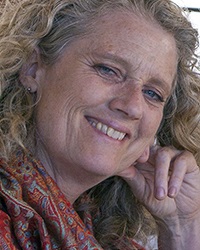
Susan Barnett
Despite her first impression of the man who would become her stepfather, Dr. Richard C. Anderson, as “a loud-voiced interloper,” when meeting him as a teenager, Susan Barnett explains that he “soon won her over,” and became “the center of her blended family.” Susan describes him as “courteous and kind.” She adds that her stepfather “is always cheerful, laughs when he is caught in an absurdity, and is passionate about everything he does.” Susan notes that although “he is in his eighties and ‘retired,’ he still works at the office almost every day, skis regardless of weather, paddles the UP [Upper Peninsula of Michigan] in a kayak, walks his beloved dog, cooks gourmet meals, keeps up on Facebook, and loses himself in fantasy basketball.” Explaining that she “doesn’t believe [she] has ever seen him lose his temper,” Susan “hopes that [she] has learned some patience and wisdom from his example.” Describing their 2013 trip to Beijing, China for the ten-year anniversary of his co-founded company, SunGlory, Susan recalls being shuttled straight to a gala dinner after the long flight. Her stepfather “was the life of the party and kept up with the rounds of Baijiu, glass for glass,” despite the fact that he was the keynote speaker the next morning.” Susan notes that he was “not only refreshed, but animated” the next day. “After enthusiastic applause following his presentation, the conference room emptied into a lobby decorated with SunGlory logos. A long line of educators and Kindergarten teachers, mostly young women, waited to pose with her stepfather in group photos-“‘Sun Dick’ was a rock star!” Susan also “got to see the real fruits of his work [when] visiting a Chinese Kindergarten to observe two excellent teachers using SunGlory books in their lessons [noting that] the children were fully engaged in discussion and on a path to becoming enthusiastic readers.” Susan describes his distinguished professional contributions, explaining that “in this age of standardized testing-of teaching to and measuring for the lowest common denominator-Dick trusts children to be curious and teaches teachers to lead rather than lecture.” She characterizes his profound global impact on the field of education, explaining that “no doubt thousands of [his] academic children, grandchildren, and great-grandchildren are teaching all over the world, passing along their love of learning along with [his] ideas for teaching.”
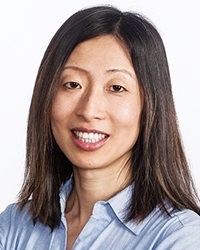
Dr. Becky Chen
Dr. Richard C. Anderson’s former student, Dr. Becky Chen, describes her mentor as “not only a great scholar but also a kind person,” adding that she “can never forget his kindness and generosity.” Although she cites his work on language and literacy development as his most significant professional accomplishment, Becky explains that “his personal achievement to [her] is the supervision of 60+ doctoral students.” She explains that he “doesn’t just teach them how to do scholarly work. He teachers them how to be kind, generous people like him.” Recalling a fond memory of time spent with her mentor, Becky explains that she was about to leave for lunch one day when she noticed him walking up and down the hallway. Learning that his car had been taken to the garage for repairs that morning, Becky invited him to join her, although she notes that this was “the first and last time [he] sat in [her] second-hand 12 year-old year car that [she] had bought for $3,000.” Adding that he bought them both sandwiches, Becky explains that “he had been coming to the same place for lunch for years.” Characterizing her mentor as one who “always puts students before himself,” Becky notes that he “thinks of them as young scholars with greater potential rather than workers for his personal achievement” and describes his influence on her mentorship, explaining that as a professor she “tries to take the same approach with her own students.”
Sara DeRudder
Describing her relationship with her father, Dr. Richard C. Anderson, as one of admiration, Sara DeRudder explains that she “is enormously proud of his accomplishments.” Adding that “these accomplishments stem directly from who he is as a person,” Sara notes that he “delights in what he undertakes…in creating works of all kinds whether an inspired research study, a photograph, a gourmet meal, or a planned outing or adventure.” As a daughter, Sara “couldn’t be more proud.” Characterizing her father as “principled, unfaltering, even driven,” she explains that “he is also honest, generous, fair, warm, kind, playful, and silly.” She adds that she “love[s] to laugh and giggle with [her] dad over silly things during a game of cribbage or a hike on a mountain.” Sara summarizes a commonly shared sentiment, noting that “he loves people [and] always strives to make [them] feel warm and welcomed.” Recalling a funny experience they shared during a trip to Beijing, China, Sara recalls that they chose a restaurant based on “its prominent advertisement that they would accept credit cards.” Learning only after the meal that this was no longer the case, Sara explains that they “were escorted by [their] waiter to a cash machine 3 blocks away” but could not get the machine to work! “Waiting like errant children in the foyer of the restaurant,” Sara explains that they were finally able to “track down a graduate student of one of [her] dad’s colleagues who then came down to bail [them] out.” Describing his essence and nature as a “single-minded purpose and playfulness,” Sara cites her father’s most significant accomplishment as “that he truly contributed to the world, not only with his own creativity and work but [also] by seeking to empower those [with whom] he is close to be their best creative selves and so contribute with their own unique gifts.”
Dr. Jana M. Mason
Characterizing her husband of nearly 40 years, Dr. Richard C. Anderson, as “kind and generous,” Dr. Jana M. Mason describes his most significant professional accomplishment, noting that he has “changed the field of reading and cognition.” She explains that he has “connected the theoretical cognitive psychologists with the educators, helping them understand how to learn from each other.” Demonstrating his commitment to working with educators and finesse in a humorous situation, Dr. Mason recalls her husband’s trip to meet with a group of school teachers in Pennsylvania a few years ago. While unpacking his suitcase, she notes that “he discovered he had brought his good shoes, but [that they were actually] two different shoes, similar in color and design but both were for the right foot.” Although he was able to wear his regular sandals for most of the trip, Dr. Mason explains that he wore both right shoes through the talk and discussion before leaving the conference in his sandals with the dress shoes in his suitcase. Also describing his profound impact as a mentor, she characterizes her husband as “dedicated [not only] to his students’ development and to their understanding basic theoretical work in cognition and learning but also to the ramifications to education of how learners might develop appropriate strategies for organizing and processing and remembering their thinking strategies.”
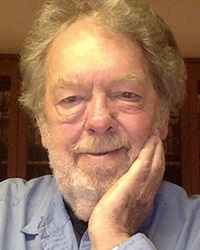
Dr. P. David Pearson
Describing his experience working with Dr. Richard C. Anderson as “changing his life, professionally and personally,” Dr. P. David Pearson first met his long-time friend and colleague more than four decades ago, and within a few years accepted an invitation to become a visiting scholar at the Center for the Study of Reading. Recalling humorous memories of working together at the Center, David notes that they both agreed to quit smoking together, “but particularly in times of stress…Dick would sneak down the hall to [his] office, close the door, and bum a cigarette from him” to avoid being seen. Adding that “this reached an apex during the production of Becoming a Nation of Readers during the 1983-84 academic year,” when David notes that the “writing was so stressful that he started smoking openly in his office, in front of Jana, God, and the Universe.” Although he notes that “in retrospect, [this] isn’t funny,” there is a “happy ending” in that both quit smoking shortly thereafter. In reference to his colleague’s work and conference presentations, David also notes that “Dick was always a scholar worth reading [and] hearing.” Highlighting two of his most significant professional accomplishments that have or will have lasting impact, David describes “the awesome work he did stretching from the late 1960s to the mid-1980s on how we encode and retrieve information in memory for use in language comprehension,” first by working with adults and gradually moving to K-12 students “so that its application in practice to would be more transparent to the field.” David adds that “in particular, he taught us about the key role that inferential processes play in guiding comprehension and filling in gaps,” and although the “idea of schema that was so prominent in the 1970s and 1980s may not be in vogue as a label [now],…the idea that knowledge begets comprehension begets learning begets knowledge-that wonderful virtuous cycle of learning and understanding-is still alive and well.” In addition, David cites that “incredible line of work that [Dick], his students, and his colleagues have conducted on the intervention they call Collaborative Reasoning.” David explains that this “technique-which requires students to take sides on a controversial moral, ethical, social, and/or political issue and mine the text for evidence to support their position(s)-is powerful in terms of improving students’ ability to read closely, warrant the claims they make, and compose compelling written arguments-everything the new reforms champion.” Also citing “Dick’s singular contribution [of] creating, organizing, nurturing, and sustaining the Center for the Study of Reasoning at UIUC [University of Illinois, Urbana-Champaign] for the past 40 years,” David notes that he originally came to the Center for one year and stayed 17. Characterizing his friend’s essence and nature as “comb[ing] rigorous analytical thinking, creative problem solving, and spot-on intuition in equal measures,” David explains that “Dick’s eye for research design is impeccable, his ear for clear and cogent academic writing is keen, [and] his nose for honing in on a problem whose time for solution has come is uncanny,” adding that “I have always been-and continue to be proud to call him my friend and colleague.”
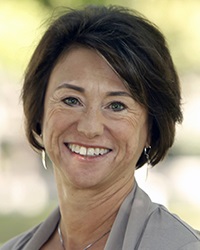
Dr. Gale Sinatra
Describing Dr. Richard C. Anderson as her academic “grandfather,” Dr. Gale Sinatra explains that he served as her Ph.D. mentor’s advisor. As a testament to his profound impact as a mentor, Gale cites his role as the inspiration for an organization called NCIC, or the National Consortium for Instruction and Cognition. Founded by a group of his students who met annually at the American Educational Research Association (AERA) conference, NCIC has become “a national annual gathering of [his] academic progeny through the generations.” Recalling that she attended her first NCIC gathering with her mentor, Dr. Mike Royer, when in graduate school, Gale explains that her students’ students now attend. Adding that “we can trace our academic heritage back to Wundt, the first psychologist,” Gale describes their “main goal [as] mentoring and keeping together the academic family that Dick is responsible for starting,” adding that he has “dozens of students [who] have gone on to be professors, textbook authors, amazing scholars, Deans, and leaders in academic and non-academic settings.” Noting that “Dick just gave a generous gift to the organization to endow a graduate student research award,” she adds that the group also “annually present[s] academic papers, give[s] research awards, and, of course, still hosts parties.” Gale summarizes these activities as “an amazing legacy for a scholar and one that is unique to [her] knowledge because of its focus on mentoring the next generation of scholars through an ‘academic family’ model.” Although she recalls initially feeling intimidated as a graduate student, Gale explains that “Dick loves to dance…in his stocking feet, no shoes” and that she “can clearly remember the first time she saw this icon of a scholar on the dance floor at AERA sliding around in his socks.” Gale describes the experience as humanizing and notes that she felt comfortable talking to him after that. Adding that he “is a gentleman as well as a scholar,” Gale also recalls that “Dick once said something that he thought [she] might have taken offense to,” and in response, “he sat down and wrote a very touching hand written note which he mailed to [her] office”-she “kept it forever, [she] was so touched.”
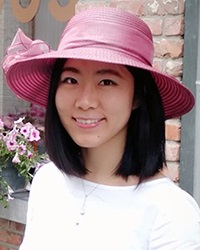
Dr. Jingjing Sun
Recalling her arrival to the University of Illinois as a graduate student, Dr. Jingjing Sun describes the warm email titled “Welcome to Illinois” that she received from her doctoral advisor, Dr. Richard C. Anderson. Explaining that her “life path has been forever changed since then,” Jingjing notes that “working with him has been like diving in the sea, as everything [she] has seen and experienced is full of wonders and joy.” In addition to “instilling in [her] heart the passion of searching for the truth,” she explains that “he has also taught [her] to keep the genuine curiosity about children-their thinking process, dialogue in the classrooms, social interactions with peers, etc.” Jingjing describes funny memories of her mentor, adding that he “loves sweet treats, and if you put one box of chocolate in his office in the morning, it will probably disappear by noon!” He also used to purchase the season pass to the Illini Basketball Game and invite each of his students to join him for a game. Jingjing recalls that he always rushed to the ice cream booth for a big cone at halftime. She notes that he has also been eating Jimmy John’s sandwiches for lunch during the past three decades-the Nos. 2 and 5 are his favorite. In fact, staff at the restaurant “would always bet on which number sandwich he would pick on that day.” Citing the generations of distinguished scholars that he has mentored who continue to move the field forward as one of his most important legacies, Jingjing describes her mentor’s “galaxy-style” picture of a “family tree” that hangs in his office. She explains that “the chart delineates his academic heritage, including both the giants who came before him, and his academic children and grandchildren, many of whom have long become national and international leaders in the field of educational psychology.” Noting that “working with Dick has been such an exciting and humbling experience” for her, Jingjing adds that he “makes sure his students, each one of [them], feels valued and supported…not through empty praise or cheerleading encouragement; [but] instead he listens to [their] ideas carefully and provides necessary scaffolding to help [them] crystallize the thoughts and move closer to the goals.” She also notes that although she has “never known a second person who is more confident than Dick in terms of pitching research ideas, [he] has clear goals and visions, and he is very articulate about the exact ideas he wants to convey.” In addition to being “an excellent writer,” he comes to research projects and publications with “very high standards to make sure the research is significant and has long-term impacts.” Jingjing describes “Dick [as] master of work-life balance” as well, noting that “he has a very efficient system of prioritizing things that naturally helps him maintain a happy relationship with his big families, both personally and academically.” She explains that he is “optimistic, encouraging, and humble” and that these characteristics in addition to a “genuine interest in helping others really draw people close to him.”
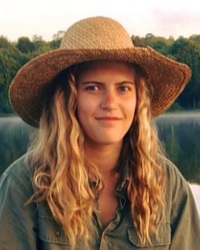
Eliza Wiseman-Floyd
Describing the nature of her relationship with her grandfather, Dr. Richard C. Anderson, as “relaxed love,” Eliza Wiseman-Floyd explains that he “is one of the coolest guys [she] know[s].” She adds that she “respect[s] him for so many things: his marriage and the way he cares for [her] grandmother, his profession and the way he treats his students like equals and empowers them, and his love for adventure whether it be walking in the woods of Wisconsin or flying over seas to Taiwan with [her].” Recalling his propensity for telling her and her siblings scary stories after dinner, Eliza explains that they would all curl up on a big brown loveseat in the den to listen to their grandfather’s rendition of a “REALLY scary story.” The funny part, she explains, is that the story was always the same with just a different grandchild playing the main character. For example, Eliza recounts the beginning of a story: “One day an old, old grandfather decided to go into the woods with his little sweet granddaughter Eliza. They walked into the woods and soon a huge storm was upon them so they took refuge in an old, creaky, abandoned house. Grandpa didn’t want to go in, but Eliza creakkkked the door open, and they went inside.” She explains that “all of the stories started out like that and ended up with some funny plot twist like a strange sound caused by a puppy or a ghost [that was] actually one of her siblings.” Eliza adds that his enthusiasm and use of voice both “enthralled and scared” them as children-his telling the same story “never got old.” In addition to his skill as a storyteller, Eliza explains that some are not aware that her grandfather used to be a very fast runner as a student. Although his “awkwardly long legs and long swift stride” might be deceiving now, she explains that one “would never know that he used to be able to run a mile in less than 5 minutes,” adding that “he used to be what we call a ‘speed demon.'” Citing his election to the National Academy of Education (NAE) and service as president of the American Educational Research Association (AERA) as among his most significant professional accomplishments, Eliza explains that “for him, one of his greatest joys is helping his students (many of them Chinese) to complete their research and graduate.” Adding that he “solely promotes education and its benefits and will help his students in any way he can,” Eliza characterizes her grandfather’s mentorship as “show[ing] how selfless he can be in his career and his deep passion for furthering the mind in education.”
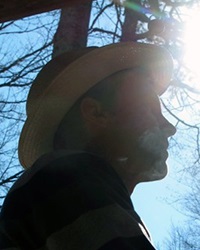
Michael Wiseman-Floyd
Describing Dr. Richard C. Anderson as both an amazing stepfather and grandfather, Michael Wiseman-Floyd explains that “if it were possible for a stepfather to replace a father, he would have done it, because he has not lacked anything to do so.” Adding that he has “always respected Dick for his dedication to not just his job, but [also] his students,” Michael notes that “he is close to [his] students and truly unselfish with them.” Characterizing his stepfather’s close relationship with his grandchildren, Michael recounts the “LONG, scary stories” he told them as they gathered on his lap and around his feet as young children. The stories often began as the grandchildren “entered a dark house, walked up a dark, creaky staircase, and opened a dusty, creaky door.” Next, they often “went into a dusty, dark attic and finally encountered an old, dusty trunk” and when “they slowly opened the lid, inside there was…A PUPPY!” In addition to his sense of humor, Michael also recalls his stepfather’s insistence “a few years ago that [they] didn’t need a new power boat (they had a 1972-ish AMF tri-hull with a hulking old Johnson motor on it).” Needless to say, Michael notes that not long after their conversation about the advantages of a new boat for fishing and skiing, the motor quit on the older boat, called the “beer barge” by neighbors. Much to his family’s surprise, Michael explains that “Dick came back that afternoon, and [within hours] had located a pretty new Bayliner stern drive…in LONG ISLAND, NY!” Before he could be dissuaded, he had already placed a winning bid on eBay. Michael adds that “Dick has proudly driven our kids around the lake skiing and tubing since.” Although his stepfather is now retired, Michael adds that “he goes to the office every day, including Sunday…BUT, when he is with you, he is all yours.” In addition to wise investment advice and support for his grandchildren’s college education, Michael explains that he “is still VERY happy to see us every time we arrive, [and] he puts on an apron, and cooks gourmet meals with great zeal,” adding that he is in excellent health in his early 80’s. Citing his greatest accomplishment as his development of others, Michael notes that “by making others great, he himself has become great. His ‘disciples’ dot every university in China now, so all over China he has open[ed] doors and opportunities to speak.” Michael adds that even though “he places others’ names above his own on published articles, he has become the most prolific publisher at one of the most prolific research universities in the world”-in essence, “by being professionally unselfish and hardworking, he has paradoxically gained a great name.”

